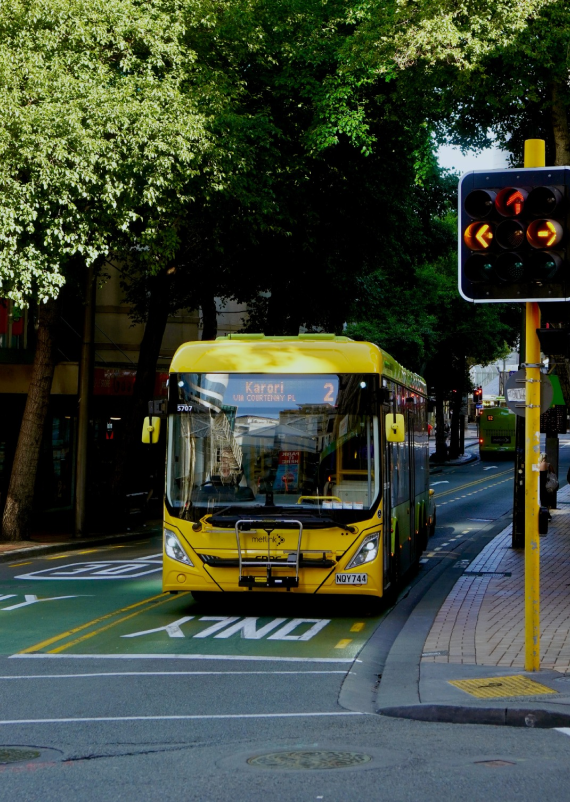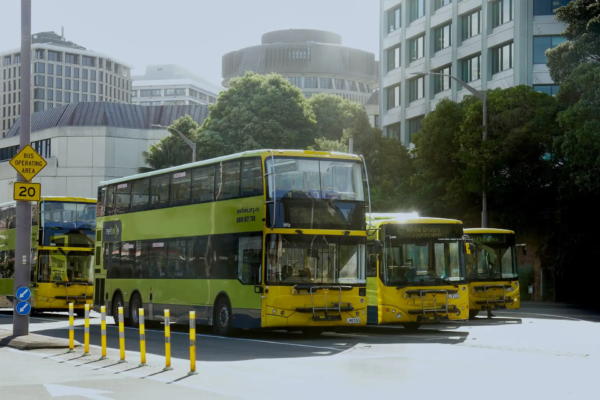9 Road user pricing (in the context of reducing emissions)
9.0.1 Description
Road pricing is an encompassing term that broadly defines a wide range of initiatives such as congestion pricing and taxes, which can be applied in the context of reducing emissions. We note that congestion pricing (see Congestion Pricing section), is one form of road pricing. In general, road pricing refers to an economic instrument that applies direct charges for the use of roads. Its purpose can be to manage travel demand, incentivise more environmentally friendly ways of travel or to act as a source of public revenue (or a combination of these). This section of analysis will look at the road pricing distance-based fees approach. This is an approach where road users are charged a per kilometre rate to use the road. This has the potential to vary depending on where you are driving and what vehicle you are driving with the overarching goal of the charges to be to reduce emissions (The UN Climate Technology Centre and Network, n.d.).
New Zealand currently operates one of the few road user charges (RUC) schemes in the world that is not only applicable to trucks (noting that the RUC scheme was not developed in the context of reducing emissions). RUC in New Zealand apply to any vehicle that is over 3.5 tonnes or runs on diesel (since diesel is not taxed at the source, excluding the separate fuel tax in the Auckland region) and must be purchased in units of 1,000 kilometres. The amount you must pay in RUC per 1000 kilometres varies significantly depending on the vehicle being driven. For most private vehicles that use diesel and weigh under 3.5 tonnes this charge is currently $76 per 1,000 kilometres. Currently electric vehicles are exempt from any RUC in New Zealand until 31 March 2024 as a way of incentivising the uptake of electric vehicles as it should save drivers roughly $800 per year (Waka Kotahi, 2022).
Germany also has a RUC scheme specifically for trucks. When it was first implemented it applied to vehicles over 12 tonnes but has since been reduced to 7.5 tonnes. In 2018 Germany tried to expand this charge to all users of German roads, including those who did not reside in Germany, but this was rejected by the EU (Davis, 2019). The charges in Germany range from €0.125 per km for a truck with low emissions and fewer than four axles to the top end of the charges of €0.214 per km for trucks with at least four axles and an engine with the highest allowable emissions level. In 2015 Germany raised €4.3 billion from truck RUC alone (Kirk & Levinson, 2016).
9.0.2 Type of travel affected
Current RUC schemes globally have a focus on heavy diesel-powered vehicles, primarily trucks. Alternative fuel cell trucks are still an emerging technology that make up a very small proportion of vehicles but are exempt from charge under schemes. This is most relevant in New Zealand where the vehicles that must pay RUC extend to private vehicles with the exclusion of electric vehicles (currently).
9.0.3 How travel and emission effects, including long-run, can be measured and modelled
Road pricing/charging in the context of reducing emissions is very similar to a carbon tax. Both emissions reduction initiatives attempt to achieve their goal of reducing emissions within the transport sector by taxing road users on how much they are driving vehicles that emit CO2 with the fee partially depending on how much CO2 the vehicle emits. Road pricing/charging is not implemented in many jurisdictions around the world (other than those truck-focused schemes), which means it is hard to look at examples of its effectiveness if it was to be implemented on a larger scale and be applicable to more classes of vehicles. The best way to model the change in travel impacts and emissions caused by current road pricing initiatives would be with price elasticity models sorted by the differing vehicle classes that incur various road charges.
Road user charges draw a lot of comparison internationally with fuel taxes and many jurisdictions see them as interchangeable emission reduction initiatives. Research indicates that road pricing could be a more effective system for reducing vehicle kilometres travelled than a fuel tax. This is because consumers may be short sighted and thus fail to take future fuel taxes into account when purchasing a new vehicle. This is compared to an upfront car tax which can immediately influence a consumer’s decisions when purchasing a car. This idea of myopia was looked at in this scenario and a theoretical model-based study found that an increase in a fuel tax of $0.5 per litre would increase average fuel efficiency by 1.3% whereas a revenue equivalent car tax per 100 kilometres travelled would increase the average fuel efficiency by 1.6%. This myopic effect in the transport sector according to this study results in a road charge being 20% more efficient then a fuel tax of the same proportion (Grigolon et al, 2015).
The transport sector in Vancouver is responsible for 40% of Vancouver’s total emissions. In 2021 the city council set aside CAD$1.5million for early planning work to see how viable and effective a road user charge in the city would be (Chan, 2022). Part of this process included gathering information on the public opinion of the implementation of a road charge. It was found that there was a two-to-one ratio of people in favour of congestion pricing compared to road charging. Reasons for this included privacy concerns around the equipment that would be required to successfully implement a road charge and that a congestion pricing charge allowed road users more options to change their driving behaviour to avoid the cost whereas a road charge would result in no behavioural change to avoid the charge besides not using a car (Amelsfort and Coffeng, 2021).
9.0.4 Secondary impacts
As with most emission reduction initiatives there is an equity concern. As all current road pricing schemes that charge per kilometer travelled only target large vehicles, predominantly trucks, there is currently only a small inequality effect (seen mainly in New Zealand with its unique approach to road user charges) but as more governments start to make plans to reduce emission from traffic this inequality effect will grow. This is because road users who do not want to face the charge can purchase an alternative fuel cell vehicle as in most road pricing schemes these are exempt. This is more difficult to do for financially vulnerable households. In the context of reducing emissions, the considerations relating to road pricing are very similar to that of a carbon tax.
Theory suggests that a road pricing scheme that charges road users by how far they drive and how emitting their vehicle is, is very efficient in reducing vehicle kilometres travelled and CO2 emissions. What makes it difficult to implement in practice is the negative public perception and cost of implementation. To implement road pricing efficiently a GPS tracking system is recommended. However, there are many technological and cost barriers associated with the implantation of such a system, including legitimate privacy concerns for road users who do not want to be tracked while travelling (Ministry of Transport, 2020).
9.0.5 Key Information sources
Amelsfort, D. v., & Coffeng, G. (2021). Electrification and a need for road user charging. International Transport Forum.
Chan, K. (2022, January 8). Vancouver City Council to decide on road tolls after October election. Retrieved from Urbanized : https://dailyhive.com/vancouver/vancouver-transport-pricing-road-tolls-timeline
Davis, J. (2019, June 21). EU Court Overturns German Road User Charge System. Retrieved from Eno Center for Transportation: https://www.enotrans.org/article/eu-court-overturns-german-road-user-charge-system/
Grigolon, L., Reynaert, M., & Verboven, F. (2015, January 10). Fuel taxes versus car taxes to reduce fuel consumption. Retrieved from VOXEU: https://voxeu.org/article/fuel-taxes-versus-car-taxes-reduce-fuel-consumption
Kirk, R. S., & Levinson, M. (2016). Mileage-Based Road User Charges. Congressional Research Service.
Ministry of Transport. (2020). The Congestion Question. Retrieved from https://www.transport.govt.nz/area-of-interest/auckland/the-congestion-question/
UN Climate Technology Centre and Network. (n.d.). Road pricing. Retrieved from https://www.ctc-n.org/technologies/road-pricing
Waka Kotahi. (2022, April). RUC rates and transaction fees. Retrieved from https://nzta.govt.nz/vehicles/road-user-charges/ruc-rates-and-transaction-fees/





























